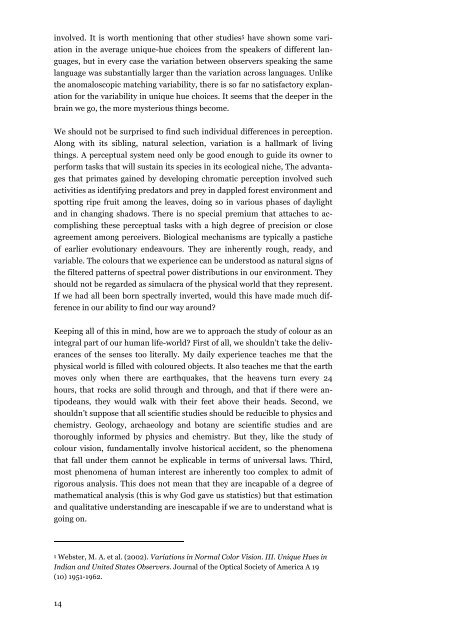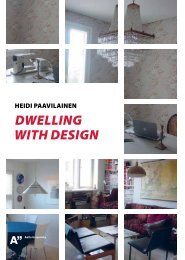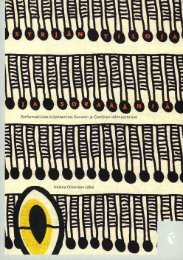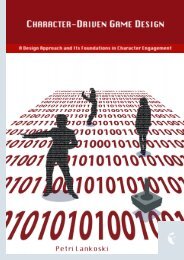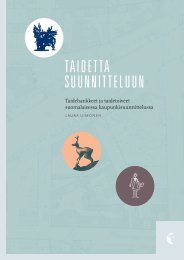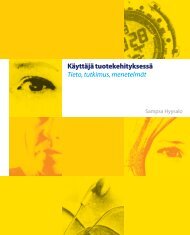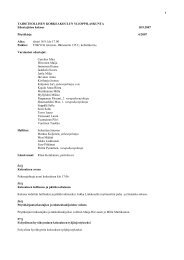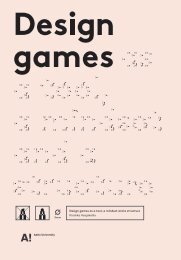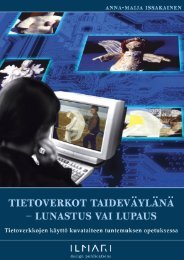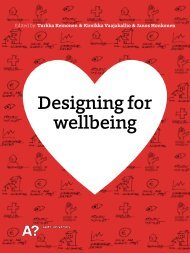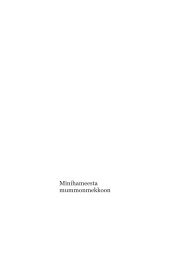Lightness and Brightness and Other Confusions
Lightness and Brightness and Other Confusions
Lightness and Brightness and Other Confusions
You also want an ePaper? Increase the reach of your titles
YUMPU automatically turns print PDFs into web optimized ePapers that Google loves.
involved. It is worth mentioning that other studies 5 have shown some variation<br />
in the average unique-hue choices from the speakers of different languages,<br />
but in every case the variation between observers speaking the same<br />
language was substantially larger than the variation across languages. Unlike<br />
the anomaloscopic matching variability, there is so far no satisfactory explanation<br />
for the variability in unique hue choices. It seems that the deeper in the<br />
brain we go, the more mysterious things become.<br />
We should not be surprised to find such individual differences in perception.<br />
Along with its sibling, natural selection, variation is a hallmark of living<br />
things. A perceptual system need only be good enough to guide its owner to<br />
perform tasks that will sustain its species in its ecological niche, The advantages<br />
that primates gained by developing chromatic perception involved such<br />
activities as identifying predators <strong>and</strong> prey in dappled forest environment <strong>and</strong><br />
spotting ripe fruit among the leaves, doing so in various phases of daylight<br />
<strong>and</strong> in changing shadows. There is no special premium that attaches to accomplishing<br />
these perceptual tasks with a high degree of precision or close<br />
agreement among perceivers. Biological mechanisms are typically a pastiche<br />
of earlier evolutionary endeavours. They are inherently rough, ready, <strong>and</strong><br />
variable. The colours that we experience can be understood as natural signs of<br />
the filtered patterns of spectral power distributions in our environment. They<br />
should not be regarded as simulacra of the physical world that they represent.<br />
If we had all been born spectrally inverted, would this have made much difference<br />
in our ability to find our way around?<br />
Keeping all of this in mind, how are we to approach the study of colour as an<br />
integral part of our human life-world? First of all, we shouldn’t take the deliverances<br />
of the senses too literally. My daily experience teaches me that the<br />
physical world is filled with coloured objects. It also teaches me that the earth<br />
moves only when there are earthquakes, that the heavens turn every 24<br />
hours, that rocks are solid through <strong>and</strong> through, <strong>and</strong> that if there were antipodeans,<br />
they would walk with their feet above their heads. Second, we<br />
shouldn’t suppose that all scientific studies should be reducible to physics <strong>and</strong><br />
chemistry. Geology, archaeology <strong>and</strong> botany are scientific studies <strong>and</strong> are<br />
thoroughly informed by physics <strong>and</strong> chemistry. But they, like the study of<br />
colour vision, fundamentally involve historical accident, so the phenomena<br />
that fall under them cannot be explicable in terms of universal laws. Third,<br />
most phenomena of human interest are inherently too complex to admit of<br />
rigorous analysis. This does not mean that they are incapable of a degree of<br />
mathematical analysis (this is why God gave us statistics) but that estimation<br />
<strong>and</strong> qualitative underst<strong>and</strong>ing are inescapable if we are to underst<strong>and</strong> what is<br />
going on.<br />
5<br />
Webster, M. A. et al. (2002). Variations in Normal Color Vision. III. Unique Hues in<br />
Indian <strong>and</strong> United States Observers. Journal of the Optical Society of America A 19<br />
(10) 1951-1962.<br />
14


